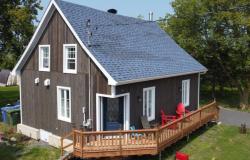“Several cases” of whooping cough occurred “recently” in two schools in the south of the canton. The parents of students at the Compesières school and the Drize Orientation Cycle thus received a letter on Thursday from the Child and Youth Health Service (SSEJ) informing them.
The spokesperson for the Department of Public Education, Lauranne Peman-Bartolini, observes that “the SSEJ is increasingly called upon for whooping cough situations, from preschool to secondary education II, and more particularly since December 2023”. Thus, “around sixty establishments or structures” have been affected since the start of the calendar year. As for the number of cases, the communicator cannot comment, since whooping cough is not a notifiable disease, except for children under six months and staff caring for this age category.
According to the Cantonal Physician Service (SMC), whooping cough “causes epidemics every year”. Its circulation has “significantly decreased” during the COVID crisis, due to the implementation of barrier measures: this infectious disease is transmitted during coughing, via expelled droplets. The SMC, on the other hand, notes “a clear increase this year, not only in the canton but throughout Europe”.
This disease is serious “only for very specific populations, such as infants under six months of age”. Their airways may be blocked by secretions. This can result in apnea, which represents a life threat, but also other complications: pneumonia, convulsions, brain damage, or even death. Pregnant women in the third trimester are also at risk, since if they are infected, they can contaminate their newborn.
Consequently, the SMC recalls the importance of vaccination (and booster vaccination) for pregnant women, but also for people who regularly come into contact with infants.
Violent coughing fits
The first symptoms of whooping cough appear seven to ten days after contamination. The disease begins with a cold and a moderate fever, then is characterized by violent and repeated coughing fits that can cut off breathing. These episodes are exhausting and can make you vomit. Generally, this acute phase lasts three to four weeks. The patient is contagious from the start of the cough and remains so for three weeks in the absence of antibiotics. If he takes it, he stops being contagious after five days.
Vaccination, instructions for use
The whooping cough vaccine protects nine out of ten people against severe forms of the disease, and seven out of ten against all its forms. The Federal Office of Public Health recommends vaccination in three doses during the first year of life, then a booster between 4 and 7 years of age, another between 11 and 15 years of age, and a final one between 25 and 29 years of age. Furthermore, a booster is recommended at each pregnancy for women, and every ten years for people in regular contact with infants.






